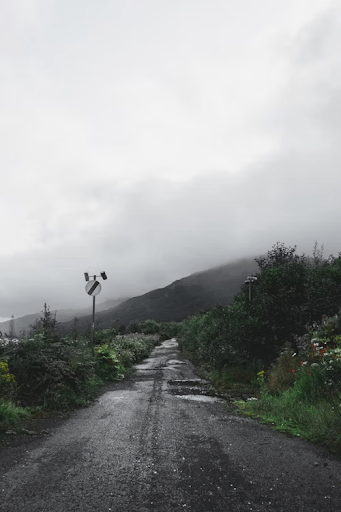
The UK’s roads are nothing short of terrible. And the worst thing about it? They’ll close off roads or put temporary traffic lights there causing chaos, spend one week doing seemingly nothing, and potholes appear again within weeks/months. Oh, they’ll also leave temporary traffic lights (out of service) and signs there forever. You’re in constant fear they might come to life again and ruin your day. No, week.
And in 2024, people are already talking about the state of the roads. One article highlighted how Welsh councils have reported 78,000 potholes since 2018 – that must be for one road. Cardiff reported the most with 5,000, followed by Cardiff with nearly 4,000.
We could keep listing statistics, but they’re upsetting for all of us road rage drivers. Because it also turns out we’re an unbelievable £14 billion behind on road repairs.
Read on to learn more.
Why Are The Roads So Bad?
The deteriorating condition of UK roads is not a sudden development. It’s the result of prolonged neglect and insufficient maintenance. With 27,250 breakdowns in the last 12 months up to 2023 linked to potholes, the issue is more than a mere inconvenience. It’s the worst thing in the world as a driver. They’re so irritating!
A considerable 35% of motorists have had to swerve abruptly to avoid potholes – and that figure has to be wrong. Most of us do that on 35% of each journey, every day.
Why Are We Behind On Repairs?
Financial constraints are the problem. That’s why they’re using sub-par materials in replacement.
Local authorities have consistently reported receiving only a fraction of the necessary funds – that makes you wonder where our money’s going.
The Annual Local Authority Road Maintenance (Alarm) survey highlights a shortfall of £1.3 billion in carriageway maintenance budgets. The gap is exacerbated by inflation and rising costs. It means that councils are using limited resources and do quick fixes that don’t last.
What Are The Consequences For Drivers?
For drivers, consequences are more than a slam into the ground and a few choice words during the morning rush to work. They can damage cars. Yes, that means increased vehicle maintenance costs. It also means higher risks of road accidents and general travel inconvenience (putting it politely).
The situation also leads to traffic congestion with ongoing road works, contributing to increased pollution and, more seriously, economic losses due to delayed travel times.
You could go as far as to say the state of the roads in the UK will essentially ruin your life. An exaggeration, maybe, but definitely our journey.
What Can Be Done?
Can anything be done? It’s beginning to feel like no. All we get is false hope with temporarily fixed potholes, only for bigger ones to come back. There has to be more funding, and there has to be better materials. Companies like JP Concrete provide high-quality construction materials, but it seems the government doesn’t know they exist.
Using durable materials that work might fix some of the problems. They could invest our road tax into fixing the potholes and other issues on the road. They could be doing a lot more, that’s for sure.
We probably didn’t need to do this article. You know the roads are bad. And now you know there’s almost no hope of fixing them. The state of the UK’s tarmac is a complex issue, we’ll say that.
It’s about more than just filling potholes (or fake filling them with poor materials); it’s about investing in the infrastructure we’re paying for. Yes, your road tax car payments should be fixing these roads.
Do you think we’ll ever catch up with the pothole issues?
Help keep news FREE for our readers
Supporting your local community newspaper/online news outlet is crucial now more than ever. If you believe in independent journalism, then consider making a valuable contribution by making a one-time or monthly donation. We operate in rural areas where providing unbiased news can be challenging. Read More About Supporting The West Wales Chronicle
























